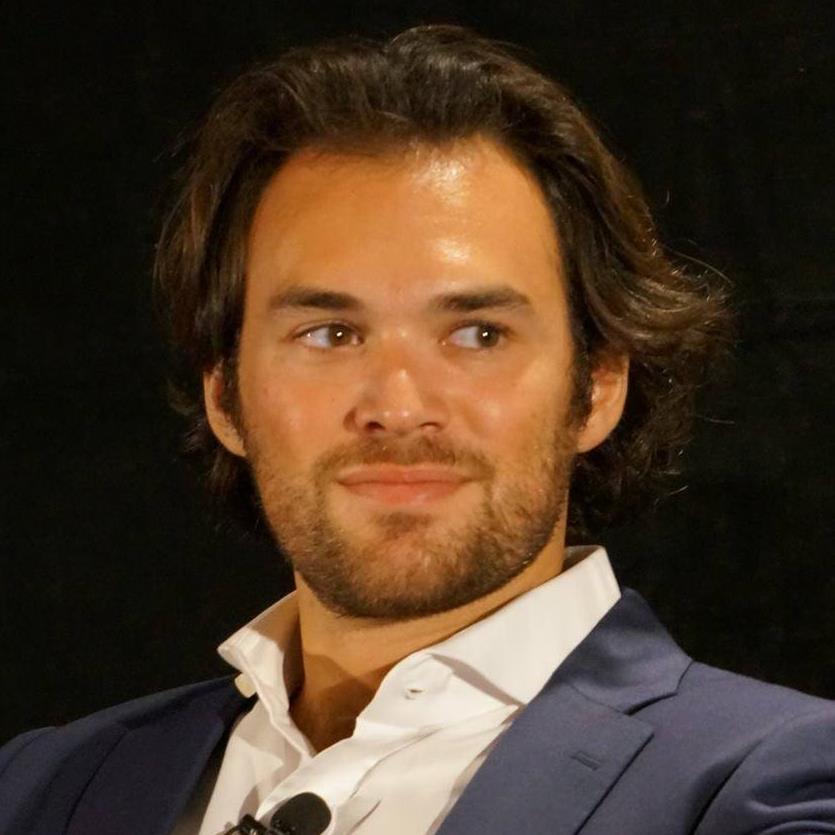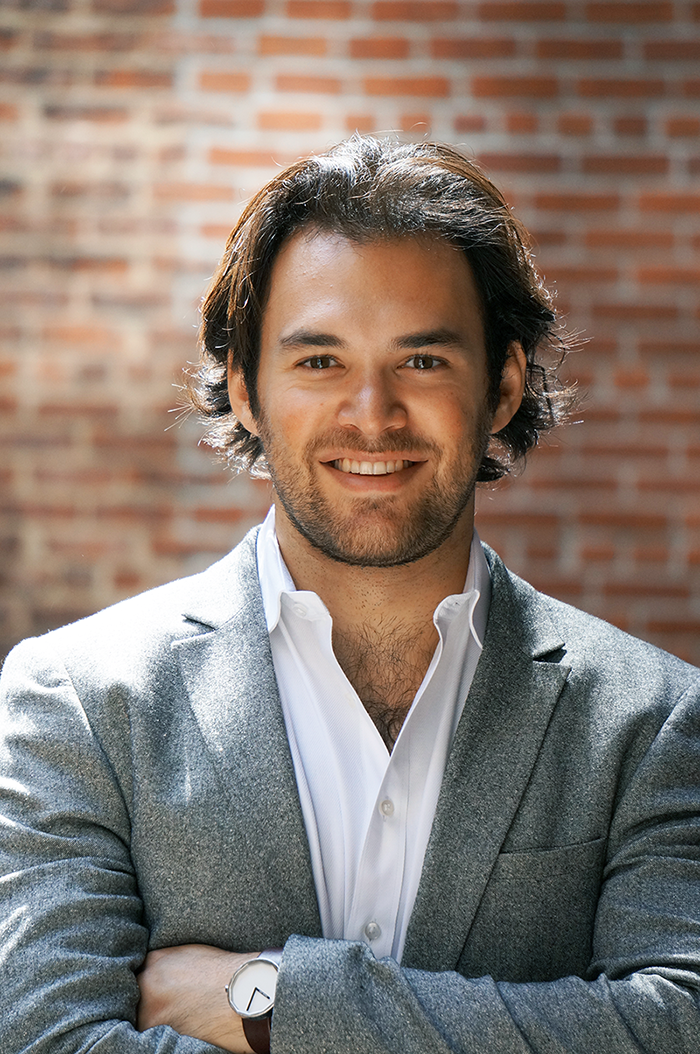“I think it’s really exciting that New Harvest is funding a lot of the basic research that needs to happen, otherwise this won’t go anywhere.”
Hey Josh! Tell us a little bit about yourself.
I’m English, been in the US for about 4 years, and lived in London before that. I’ve been an entrepreneur my whole professional career and started my first business while I was still in school.
I had an e-commerce company that failed terribly before I graduated but I caught the entrepreneurial bug after that. In 2007 I became really excited about social media, and Facebook had just launched their 3rd party developer platform. I launched a company called iPlatform that was one of the first ever agencies building apps for big brands on the Facebook platform. My current company Conversocial evolved out of that – the realization that as our communication shifts into social media and global messaging, it’s dramatically changing how companies communicate with their customers
We build software that helps companies deliver customer service to their customers through social media and mobile messaging channels. We were the first company to start talking about social customer service, but now it’s one of the most important customer service channel, and we have over 250 clients, including Google, Sprint, Hyatt, Hertz and many more. In terms of the future, I think AI is a big one on the horizon. We already have some aspects of machine learning in the system and are rapidly increasing this—I think that AI’s going to be extremely disruptive in the customer service area over the next couple of years.
Wow. Were you guys one of the first to use social media for customer service?
Yeah. We were the first!
That’s amazing. It seems like such a no-brainer now! So, how did you find out about NH and what inspired you to get involved at a deeper level?
I’ve been pretty passionate about cellular agriculture for a long time. I’ve just always, since I can really remember, had an assumption that this had to be future. I don’t know when exactly it came up, but I’ve always read a lot of science fiction.
Who are some of your favourites?
Iain M. Banks is definitely my favourite. His Culture series are some of the best sci fi books, looking at a post-Singularity society – Singularity is a term often bandied about in AI circles, about when we reach strong artificial intelligence. The prediction is that after that point, we’ll see extremely rapid improvements in all aspects of technology. So it’s a kind of post-Singularity, futuristic, very advanced human/AI civilization. They’re my favorite books. These and many other sci-fi books had this kind of assumption where in the future—that we’d figure out how to make meat without killing animals. I’ve always had a belief that this would happen.
As I got older and got more into business and politics – it became clear that it’s essential for this to happen, for so many reasons. For the purely practical: if the levels of meat consumption in China and India reaches Western levels, there just physically isn’t capacity on Earth to support it. Then you’ve obviously got huge climate issues. I’m constantly worried by the amount of antibiotics that go into meat production and the huge potential for global health issues. And even though I’m a meat eater and I do love eating meat, factory farming and slaughtering billions of animals is pretty horrific.
So all of these reasons come together and make it pretty essential. I was really excited when I started to hear of some of the early developments in cell ag – people creating the first burger, and the work that companies like Modern Meadow were doing. It was actually through friends in New York about a year ago that I found out about New Harvest. I met people who worked at Modern Meadow and that’s how I got introduced, and my interest has grown from there.
So prior to that you’d been thinking about this but hadn’t yet made a personal connection with anyone who is involved.
Yeah. But in terms of why New Harvest – once I got involved I learned a lot on the current state of play, and realized that we’re still a way away still from having the scientific knowledge to really build the industrial processes that would make this feasible for creating food at a large scale. And I think it’s really exciting that New Harvest is funding a lot of that basic research that needs to happen, otherwise this won’t go anywhere.
Were there any particular surprises that your involvement with NH opened your eyes to?
The timeline one is really interesting. Early on, I thought this was always a futuristic thing. Then you heard about the burger and thought “Oh this will become super cheap and easy to do.” But one of the things I really learned after getting more involved is how little investment is going into the research. Achieving rapid price decreases will take a lot of work and investment, and actually there’s very little of that going in at the moment. That’s both a challenge and an opportunity. We don’t know exactly when it’ll become feasible, but the more investment we can get into the space and research we can get going, the sooner we can bring that timeline forward. That could be years or decades depending on that factor.
Exactly. And you’re helping us bring that timeline forward! Are there any New Harvest research projects that you’re particularly excited about?
It’s all pretty exciting. The research going into avian cell culture is interesting, because no one had done it before. The focus was on beef, and there’s a lot of complexity and difficulty in [bovine cell culture], so it’s exciting that things like turkey and chicken could potentially be faster and easier. And the research that’s starting to happen in cell culture medium is really interesting. That, from my understanding, is a huge part of the challenge in scalings this up in a low cost and efficient way: creating the actual substances that you’re going to be feeding the cells. And right now things like serum a). take animal products, and b). are extremely expensive. Lots of the processes have been taken from medical work which obviously doesn’t scale into large scale food production. So that research is really important.

What’s your vision of the cell ag industry in the near and distant future?
I think that over the next 5 – 10 years it’s just going to be about figuring out how to do this at scale. My assumption is that it’ll still be reasonably expensive. Although it’ll start to become more affordable, it’ll probably still be more expensive than mainstream meat production which is still heavily subsidized. I think food security remains a key issue for a lot of countries and cell ag is interesting from that perspective. You’ll see it take root in various niche markets, and also major investment at that time will come from governments who are interested from the food security perspective. My guess is that it’ll need about 10 – 20 years to become competitive with “animal-grown” meat, at which point it can be really transformational.
I could see a lot of high end restaurants wanting to do it. I think you’ll also probably see the vegetarian market take to it as a way of eating meat – which is great, and a good first step. But where it becomes truly transformational is with meat eaters, and that’s the real goal. Vegetarians and vegans are already really excited about this, and that’s awesome, and they’re probably prepared to spend more because they probably won’t eat much anyway. But where it becomes transformational is when you’re shifting mainstream meat eaters.
Would you, as a current meat eater, eat cultured meat?
100%. I’d prefer to eat cultured meat! I enjoy eating meat – I love the taste and everything else. My biggest concern is the health perspective – the amount of hormones and antibiotics, and the unsanitary conditions in slaughterhouses – it’s really not great from a health perspective. So if I could eat meat without any of those issues, that would be really exciting.
So if cultured meat were available, could you see yourself ending your consumption of meat from animals?
Yes. And if you think about the future, I can imagine people being hesitant. But I could see the next generation coming up [in a context where] cultured meat is completely normal, and hearing an argument between a daughter and her mother, where the daughter is like “How could you possibly be continuing to do this? You’re murdering an animal, eating meat that’s more expensive (by that point) and worse for you”. I can really see animal meat becoming a ridiculous concept.
You’ve been watching this space for years now – longer than most people – have you seen the public perception change over time?
It’s still way too early. There’s a little bit of “Oh, that’s kind of exciting” when I have informal chats with various people. We do have this issue in society at the moment, the anti GM, anti-”Frankenfood” or whatever it is, and for the most part it’s very misguided. The big concern is that cellular agriculture gets kind of lumped in with that. I don’t know the answer to that yet, but I think that’s going to be one of the big challenges for cellular agriculture in the years to come.

Headshot of Joshua March
As a member of the New Harvest community, do you have a vision for what you’d like to see NH become?
It’d be great to see New Harvest continue to grow. It’s super exciting that you now have your own researchers doing some of the core research. That’s amazing – so now you’re not just funding the academic research but actually doing it.
I have a pervading thesis that it’s easier to change technology than it is to change people. There’s lots of people who talk about wanting to reduce meat consumption, and that kind of thing. But I think that we’ll be able to get cellular agriculture to the place where we can create lab grown meat cheaper and more efficiently and better than any kind of animal grown meat, faster than we can shift people off eating meat.
What do you like to do outside of work?
I do a lot of CrossFit, that’s sort of my big thing. I read a lot of science fiction and travel a lot for work, and I like to hang out with my friends. I always like to be learning new stuff.
Right now I’m actually learning Mandarin, even though I’m terrible at languages. I’ve just never had a definite enough interest in any other language, but I’ve always had an interest in China. I used to do a lot of Chinese martial arts. Baguazhang, kung fu, and I did some full contact MMA fights in college. I play Go. I used to consider myself a Taoist (now atheist), and I still meditate regularly. I’ve never actually been to China, but I’m planning to. It’s interesting to learn a language that’s so completely different from English.
It’s a different way of thinking too.
Yeah, and that intrigues me a lot.



